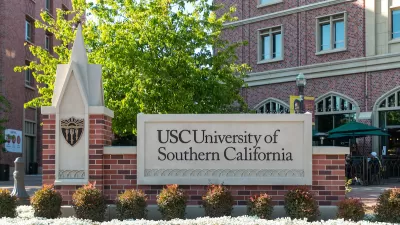A new study estimates that LA County must invest billions of dollars before 2040 to protect residents from extreme heat, increasing precipitation, worsening wildfires, rising sea levels, and climate-induced public health threats.

With climate-driven disasters in Southern California getting more intense each year, it is more important than ever for communities to invest in a wide range of climate adaptation and resilience projects and measures. As reported by Hayley Smith of the LA Times, a recently released new study offers estimated costs of preparing for and adapting to 14 different climate impacts on municipal, county, state, and federal governments in Los Angeles County.
According to the report by The Center for Climate Integrity, the most costly adaptation categories are related to precipitation and heat, including an estimated $4.3 billion for improved stormwater management, $2.5 billion for cool pavement investments, and $1.4 billion for tree canopies to combat urban heat islands. Other costs include wildfire mitigation, coastal defense and infrastructure protection, building upgrades for cooling and air conditioning, and responses to vector-borne diseases.
The study estimates that municipal, county, state, and federal governments will need to expend at least $12.5 billion through 2040, more than $9 billion of which will be incurred by municipal governments. The total cost equates to about $780 million annually to protect communities in L.A. County from extreme heat, changing precipitation, wildfires, rising sea levels, and climate-induced public health threats.
FULL STORY: L.A. County faces $12.5 billion in climate costs through 2040, study says

Maui's Vacation Rental Debate Turns Ugly
Verbal attacks, misinformation campaigns and fistfights plague a high-stakes debate to convert thousands of vacation rentals into long-term housing.

Planetizen Federal Action Tracker
A weekly monitor of how Trump’s orders and actions are impacting planners and planning in America.

Chicago’s Ghost Rails
Just beneath the surface of the modern city lie the remnants of its expansive early 20th-century streetcar system.

Bend, Oregon Zoning Reforms Prioritize Small-Scale Housing
The city altered its zoning code to allow multi-family housing and eliminated parking mandates citywide.

Amtrak Cutting Jobs, Funding to High-Speed Rail
The agency plans to cut 10 percent of its workforce and has confirmed it will not fund new high-speed rail projects.

LA Denies Basic Services to Unhoused Residents
The city has repeatedly failed to respond to requests for trash pickup at encampment sites, and eliminated a program that provided mobile showers and toilets.
Urban Design for Planners 1: Software Tools
This six-course series explores essential urban design concepts using open source software and equips planners with the tools they need to participate fully in the urban design process.
Planning for Universal Design
Learn the tools for implementing Universal Design in planning regulations.
planning NEXT
Appalachian Highlands Housing Partners
Mpact (founded as Rail~Volution)
City of Camden Redevelopment Agency
City of Astoria
City of Portland
City of Laramie





























